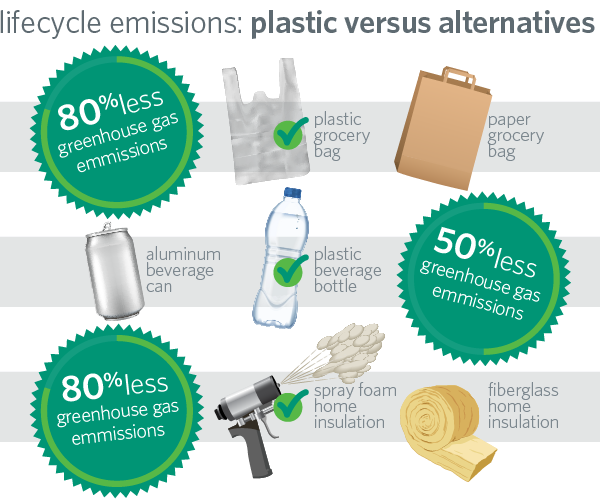Hi there,
More often than not, when we hear about plastic, it’s about mismanaged plastic waste that ends up in the environment. And while that’s a critical issue that our industries are actively working to address, there’s another incredibly important role for plastics that isn’t often discussed: plastics are really good at reducing greenhouse gas (GHG) emissions.
Last week, McKinsey released a brand-new report outlining the emissions profiles of plastic vs. non-plastic alternatives in multiple use cases. They found that in nearly every case examined, plastics are responsible for less greenhouse gas (GHG) emissions throughout their lifecycle than alternative materials. File that factoid away for future use!

Here are some other highlights from the report:
- Generally speaking, plastic requires less energy to produce and is more weight-efficient than alternatives like paper. (Basically, it takes much less plastic to hold the same volume of goods than paper or cloth bags).
- Metal cans that hold food are responsible for three times more GHG emissions than plastic food pouches.
- Plastic water pipes are responsible for 25 percent lower GHG emissions than copper.
Polyester fabric has a smaller environmental footprint than cotton. The production process is less resource and emissions intensive.
Thanks to our industries, the world is becoming an increasingly sustainable place. Learn more about how we’re providing sustainable solutions in the 2022 Sustainability Report.
Allison + the AFPM EMPOWER team
Stand With Us
Join our community of employee advocates. Sign up for new content delivered straight to your inbox.